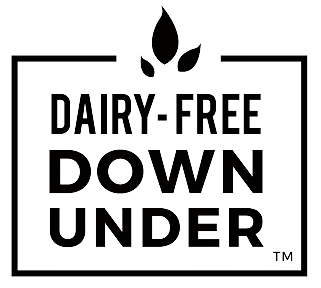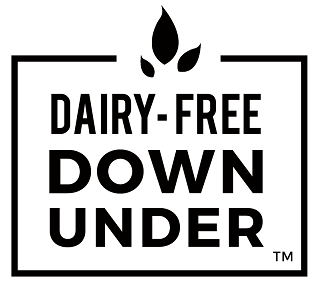The global financial crisis of 2007-2008 is often talked about in business circles in hushed tones. It’s known as a time where numerous ventures fell over amidst reluctant shoppers and even more reluctant lenders, and it sparked a period of economic downturn that slowly ground down those who had managed to survive the initial bust.
Now almost exactly 10 years on from the collapse of global financial services firm Lehman Brothers, which sparked the crisis, global markets have recovered and some of the most well-known global businesses are thriving. But worries still remain about what another crash at a similar scale could do to Australia’s smaller operators.
Despite Australia’s proactive approach to the financial crisis and overall relative economic health, which prevented the country from falling too deeply into economic destitution, a number of small businesses and startups still felt the burn of an unforeseen period of hardship.
Some of those survived, while others didn’t. Some of those who did pull through emerged the other side a stronger and more resilient business, while others turned their businesses around entirely, moving into different areas in attempts to build stronger, crisis-resistant businesses.
“It was a very scary time”
One such business was small Queensland fruit packing operation Family Fresh, owned by co-founders Kevin and Jenny Flanagan. At the time of the GFC, the Flanagan’s business had been running for around 23 years, supplying pre-packaged and cut fruit into supermarkets and other retail outlets.
Kevin Flanagan says the fruit business was always pretty cutthroat, and at times wildly inconsistent.
“You’d never know what you’d be getting with fruit from one day with the next, but we rode with the times,” the business owner told SmartCompany.
Bouncing through the peaks and troughs of business, Family Fresh found itself at an unprecedented peak in 2008, having just invested in a major fruit processing facility for a major client that was going to be the business’ number one supplier.
“I remember thinking ‘this is it’. We were away, and we were going to be the king of the castle,” Jenny Flanagan says.
Then the crisis hit. No sooner had the two signed the papers to have the new facility built, that the supply orders got pulled on them, leaving the business “holding the bag”.
“We were halfway through building so we had to keep going. We even managed to pick up another customer, so it looked alright for a bit,” Kevin says.
Then the builder the Flanagans were using went broke also, followed by the business’ bank being bought out by another bank. The new bank owners wanted nothing to do with the business, says the founders, so they were forced to find another bank altogether.
“We’re still with that bank to this day, so that wasn’t so much of a downside then,” Kevin laughs.
In the end, the business relocated and built a smaller factory and processing plant to keep the orders rolling for the suppliers they’d managed to keep. But Jenny says the business was in “all sorts of trouble” and came close to falling over a number of times.
“At times we were close to losing everything, it was a very scary time,” she says.
Startups thrive through the GFC
While the founders of Family Fresh had their business well-established when the crisis hit, other founders weren’t as lucky, with numerous Australian startups taking their first steps at the time of the GFC.
Around the same number of businesses started up during the GFC as those that started up in recent years; Australian Bureau of Statistic figures show the entry rate for new businesses between 2008-2009 was 14.4%, whereas the most recent entry rate for 2016-2017 was 15.1%.
This shows, despite the doom and gloom in the market, young ambitious entrepreneurs and founders were anything but deterred. One such founder was Jordan Grives, who established his telecommunications company Fonebox in 2008, and then sold it eight years later for $30 million.
Just 18 at the time, Grives tells SmartCompany his youth and chutzpah meant he was fairly blasé when it came to the GFC and associated economic crisis, which ended up working out fairly well in his favour.
“I didn’t have much risk or money, property, or assets in general, so I didn’t see the material effect it had on people, which I suppose allowed me to focus on making a winning business,” Grives says.
“A plus was that my company saved businesses money and improved a service for them. So it was a win-win.”
The startup founder, who now runs a private startup accelerator and a number of other ventures, says he “definitely” thinks starting his business in a time of crisis made him a better business owner.
“Starting anything from scratch shows you what it takes. Racking up credit card debt is a good way to learn to sell because you have no choice, and it’s the only way out,” he says.
Grives wasn’t the only founder who took the plunge back in 2008. A number of now-strong Aussie startups such as Campaign Monitor and WME first stretched their wings as the financial onslaught hit.
One such business was much-loved startup incubator Pollenizer, founded by Phil Morle and Mick Liubinskas back in 2008. Speaking to SmartCompany, founder-turned-venture capitalist Morle says, while he was initially worried about the GFC, he and his co-founder decided to just get on with the job.
“The GFC rumbled in at the same time Mick and I were trying to get our brand new Pollenizer started. We were worried about it, but lots of people told us that some of the best companies in the world were built in difficult times. So we just got on with it,” he says.
“I think it allowed us to build a company that was ‘anti-fragile’, never forgetting that conditions can be tough, [and] generally having another way up our sleeve if required. In some ways, starting a company is so difficult anyway, a GFC does not make it materially more difficult.”
“As we pulled through the GFC, we saw talented people appear on the market, refugees from larger companies who had decided that now was the time to do something new. It was just like bushfires creating new growth.”
Pollenizer survived for a decade, before shutting its doors in early 2017 to great sadness from the startup scene. At the time of closure, Morle said he was proud of the business’ effect on the local startup ecosystem.
“If you measure Pollenizer by impact then I am enormously proud, and it is an unequivocal success … but in terms of finding a sustainable business model then we failed,” he said at the time.
‘Bushfires creating new growth’
Despite the destruction the GFC wrought on their business, Kevin and Jenny Flanagan emerged out the other side with a new determination to not let it happen again. Kevin returned to the drawing board, seeking out any gaps in the market he could to help his business expand its range and gamut of clients.
“We bought a little protein ball business, but there were a lot of businesses doing that at the time so it felt a bit like flogging a dead horse,” he says.
But then the two business owners came across dairy-free cheese, and after trialling a number of products at trade shows around the country, they knew they were on to a winner — even if their workers were less than enthused.
“I remember coming into the factory and telling everyone we were going to start doing dairy-free cheese. They all just about collapsed,” he laughs.
The business changed its name to Dairy-Free Down Under and dived into the space, launching 22 different products, including cheese, mayonnaise and aioli. Today, despite Kevin saying the business is still in the building stage, he estimates it to have grown tenfold over the past five years and attributes part of its success to the lessons they learnt from surviving the GFC.
“I don’t think we’d be here if we didn’t have that experience. It really made us push and try to look for different product ranges to expand into. We had to go through a lot of different things, but we believed we could and we just kept going,” he says.
The Flanagans are now looking to expand their business significantly in the coming years, with the desire to become an Australian household name. Having gone through their hardship, the founders advise any other struggling entrepreneurs to keep at it, and always be on the lookout for new opportunities.
“We had faith in ourselves and we knew the opportunities were out there. You might think you’re stuck in a rut but you just need to open your eyes,” says Jenny.
“There’s no way in hell I would have ever predicted us doing dairy-free cheese.”
Asked about the potential of another economic crash, the business owners are confident they’re well prepared this time, having diversified their eggs into many baskets.
“We’re sold mainly through independent stores, and we have a number of distributors, so if one goes down it’s not the end of the world for us. If something bad does happen we’re much more shored-up,” Jenny says.
Grives is a bit more cautious about the prospect of another potential crash, compared to the early days running Fonebox; he now has “something to lose” in terms of money in the stock market and various investments. But he says just like last time, there’ll be plenty of opportunity for startup founders.
“Once again, there’ll be lots of opportunities, as long as you have a bit of an appetite for risk,” he says.




